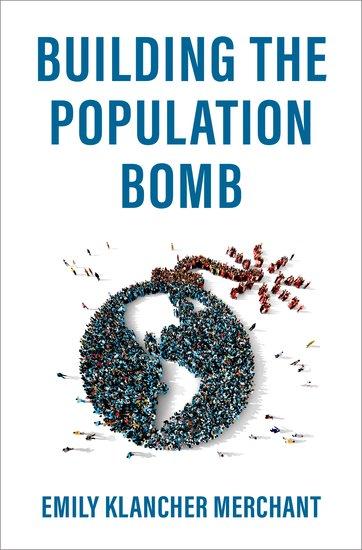
Emily Merchant explores the history of population growth modeling and the intellectual and ideological battles over the concept of overpopulation.

Emily Merchant explores the history of population growth modeling and the intellectual and ideological battles over the concept of overpopulation.
 Emily Merchant is a historian of science and technology at the University of California, Davis. Dr. Merchant was a 2012-2013 Research Fellow at the Consortium for History of Science, Technology & Medicine.
Emily Merchant is a historian of science and technology at the University of California, Davis. Dr. Merchant was a 2012-2013 Research Fellow at the Consortium for History of Science, Technology & Medicine.
In this episode of Perspectives, we speak with Emily Merchant, author of Building the Population Bomb.
In her book, Dr. Merchant explores the history of population growth modeling and the intellectual and ideological battles over the concept of overpopulation. Merchant describes the battle between the so-called mercantilist position—held by a number of statisticians, among others—which posited that population growth was the driver of national economic development and geopolitical strength, and the Malthusian position (named after noted economist Thomas Robert Malthus)—held by quite a few biologists and natural scientists—that saw rapid population growth as a harbinger of poverty, famine, and ecological collapse. The publication of the 1968 book The Population Bomb by Stanford biologist Paul Ehrlich made overpopulation a cause célèbre in the late 1960s and 1970s. However, as Dr. Merchant makes clear, those fears did not come to fruition, and many of the problems that were blamed on overpopulation would more accurately have been ascribed to colonial and postcolonial economic relationships, and the maldistribution of global resources.
To cite this podcast, please use footnote:
Emily Merchant is a historian of science and technology at the University of California, Davis. Dr. Merchant was a 2012-2013 Research Fellow at the Consortium for History of Science, Technology & Medicine. Emily Merchant, interview, Perspectives, Consortium for History of Science, Technology and Medicine, November 9, 2021, /video/130.
Closed-captioning available on Youtube.
The Consortium's collections provide many opportunities to learn more about demography, population concerns, eugenics, and philanthropic organizations.
Our cross-institutional search tool allows researchers to investigate materials across multiple institutions from a single interface. With more than 4.4 million catalog records of rare books and manuscripts, the Consortium's search hub offers scholars and the public the ability to identify and locate relevant materials.
Alfred J. Lotka Papers, Princeton University
Ansley J. Coale Papers, Princeton University
Frank W. Notestein Papers, Princeton University
Hugh Moore Fund Collection, Princeton University
School of Public and International Affairs, Princeton University
John D. Rockefeller III Papers, Rockefeller Archive Center
Population Council Records, Rockefeller Archive Center
Rockefeller Foundation Records, Rockefeller Archive Center
Millbank Memorial Fund Records, Yale University
American Eugenics Society Records, American Philosophical Society
Frederick Henry Osborn Papers, American Philosophical Society
Raymond Pearl Papers, American Philosophical Society
© 2026 Consortium for History of Science, Technology and Medicine | Copyright Infringement